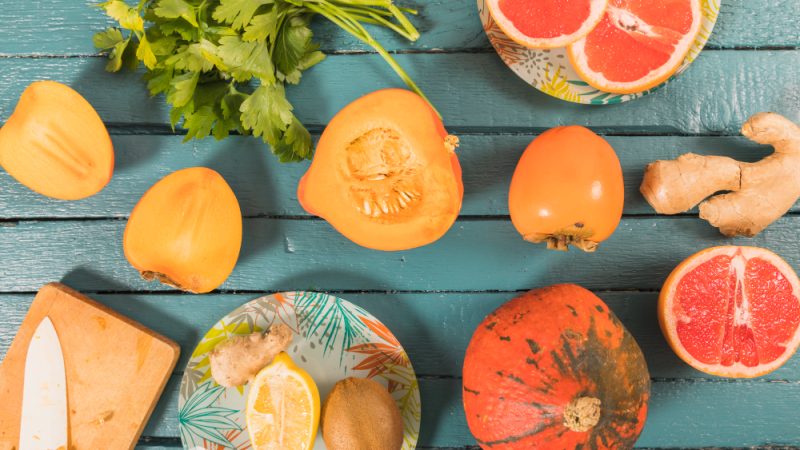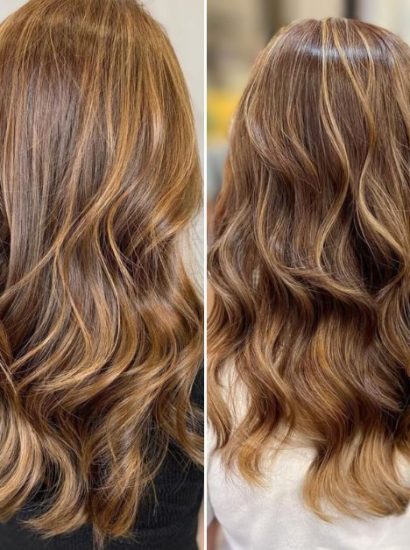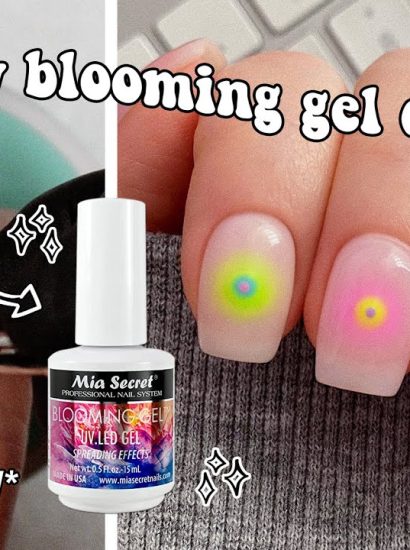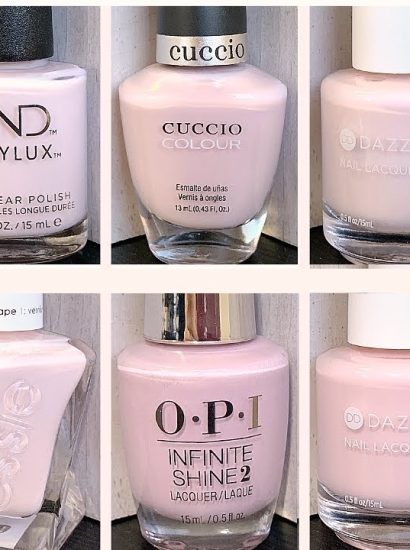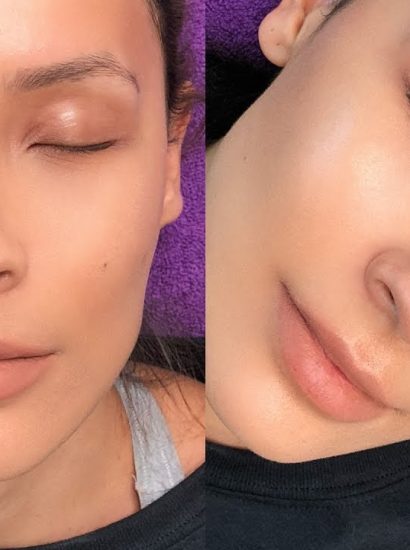Dehydrated skin is more than just a surface-level condition—it’s a sign that your body might not be getting enough water and essential nutrients. Unlike dry skin, which lacks lipids, dehydrated skin is simply low in moisture. This can lead to a dull complexion, increased sensitivity, and premature signs of aging. While proper skincare and hydration are crucial, what you eat plays a significant role in how your skin retains moisture. In this article, we’ll explore 10 nutrient-packed foods that not only boost your overall health but also help combat dehydrated skin from the inside out. By incorporating these foods into your daily diet, you can support your skin’s natural hydration and achieve a radiant, supple glow.
1. Avocados – The Creamy Source of Hydration
Avocados are a skincare superstar thanks to their high content of healthy monounsaturated fats and vitamin E. These nutrients help reinforce your skin’s natural barrier, locking in moisture and protecting against environmental stressors. Avocados also contain antioxidants that combat free radicals, which can further dehydrate your skin. Whether you mash it onto toast, blend it into a smoothie, or toss it in a salad, adding avocado to your diet can provide the essential fatty acids that support cellular repair and moisture retention. Their creamy texture isn’t just delicious—it’s a signal of the hydrating, skin-nourishing benefits waiting to be absorbed by your body.
2. Fatty Fish – Omega-3 Rich Marine Marvels
Fatty fish such as salmon, mackerel, and sardines are excellent sources of omega-3 fatty acids. Omega-3s are known to reduce inflammation and help maintain your skin’s lipid barrier, which is essential for locking in moisture. When your skin’s barrier is strong, it’s less likely to lose water, meaning your complexion remains plump and hydrated. In addition, these fish are rich in protein and other nutrients that support skin cell regeneration. Incorporating a serving of fatty fish into your weekly meal plan can contribute to overall skin health, reducing the appearance of dehydration and helping your skin look more vibrant and resilient.
3. Nuts and Seeds – Tiny Treasures for Moisture
Nuts and seeds, including almonds, walnuts, chia seeds, and flaxseeds, pack a nutritional punch that benefits dehydrated skin. They are loaded with vitamin E, which plays a crucial role in protecting skin cells from oxidative damage. The healthy fats in these foods help maintain the skin’s natural barrier, ensuring that moisture stays locked in. A small handful of almonds or a sprinkle of chia seeds over your yogurt or salad can provide essential fatty acids and antioxidants. These tiny treasures work from the inside out, contributing to smoother, softer skin and helping to prevent the flakiness that often accompanies dehydration.
4. Cucumbers – The Hydration Heroes
Cucumbers are one of nature’s most hydrating foods, boasting a water content of about 95%. This refreshing vegetable is not only low in calories but also rich in vitamins such as K and C, which promote skin health. The high water content in cucumbers helps to naturally rehydrate your skin cells, while their antioxidants soothe inflammation and reduce puffiness. Enjoy cucumbers sliced in a salad, blended into a smoothie, or even infused in your water for an extra boost. By including cucumbers in your diet, you’re providing your skin with the hydration it needs to maintain a healthy, radiant appearance.
5. Watermelon – Nature’s Refreshing Hydrator
Watermelon is another water-rich fruit that works wonders for dehydrated skin. With its high water content and essential vitamins like A and C, watermelon helps to keep your skin cells moisturized and resilient. Vitamin C is vital for collagen production, which helps maintain skin elasticity and firmness. The natural sugars in watermelon also provide a quick energy boost for skin cells, aiding in repair and rejuvenation. Whether eaten on its own as a cool snack during the summer or blended into a refreshing juice, watermelon is a delicious way to increase your daily fluid intake and support skin hydration from within.
6. Oranges – Citrus Boost for Skin Vitality
Oranges and other citrus fruits are well-known for their high vitamin C content, an essential nutrient for skin health. Vitamin C not only promotes collagen production but also acts as a powerful antioxidant that protects your skin from environmental damage and dehydration. The water and electrolytes found in oranges help replenish moisture levels, making them an excellent choice for combating dry, thirsty skin. Enjoy a glass of fresh orange juice or add orange segments to your salad for a zesty, hydrating treat. By regularly consuming citrus fruits, you provide your skin with the nutrients necessary to repair and maintain its natural hydration, leading to a more luminous complexion.
7. Leafy Greens – Nutrient Dense for Skin Health
Leafy greens such as spinach, kale, and Swiss chard are nutritional powerhouses loaded with vitamins A, C, and K, as well as antioxidants and minerals that promote skin hydration. These vegetables support the maintenance of your skin’s structure by providing the building blocks for collagen synthesis. Their high water content further contributes to overall hydration, helping to flush out toxins that can contribute to dryness and dullness. Adding a generous serving of leafy greens to your meals—whether in salads, smoothies, or sautéed as a side dish—can enhance your skin’s moisture retention capabilities and support a healthier, more radiant complexion.
8. Sweet Potatoes – Beta-Carotene for a Radiant Glow
Sweet potatoes are an excellent source of beta-carotene, a precursor to vitamin A, which is essential for skin repair and regeneration. Vitamin A helps to promote healthy skin cell turnover, keeping your complexion fresh and hydrated. In addition, sweet potatoes contain antioxidants that protect against oxidative stress—a key factor in skin dehydration. The natural sweetness of these tubers makes them a versatile addition to your diet; they can be baked, mashed, or added to soups and stews. By including sweet potatoes in your meal rotation, you not only enjoy a delicious and nutritious food but also supply your skin with the nutrients it needs to stay moisturized and glowing.
9. Berries – Antioxidant-Rich Superfoods
Berries, including blueberries, strawberries, and raspberries, are renowned for their high antioxidant content. These antioxidants help combat free radicals that can damage skin cells and contribute to dehydration. Berries are also packed with vitamins and water, making them a dual-purpose food that hydrates while protecting your skin from oxidative stress. Enjoy berries as a snack, blend them into smoothies, or add them to your breakfast cereal to boost your daily nutrient intake. Their vibrant colors are a testament to their health benefits, and regular consumption of berries can help maintain skin elasticity and moisture, ensuring that your complexion remains youthful and radiant.
10. Greek Yogurt – Probiotics and Protein for Balance
Greek yogurt is not only a great source of protein and calcium but also contains beneficial probiotics that promote gut health. A healthy gut is directly linked to healthy skin, as it aids in nutrient absorption and reduces inflammation—two factors crucial for combating dehydrated skin. The creamy texture and balanced pH of Greek yogurt can also help soothe irritated skin when applied topically, though its internal benefits are just as impressive. Enjoy Greek yogurt as a snack, mix it into smoothies, or use it as a base for dressings to reap its skin-friendly benefits. By incorporating Greek yogurt into your diet, you’re supporting both your digestive system and your skin’s hydration, leading to a clearer, more balanced complexion.
Conclusion
Combating dehydrated skin goes beyond just applying moisturizers and serums—it starts from within. By incorporating these 10 nutrient-dense foods into your daily diet, you’re giving your skin the hydration and essential nutrients it needs to thrive. From the healthy fats in avocados to the antioxidant power of berries, each food plays a unique role in restoring your skin’s moisture balance and enhancing its natural glow. Remember, achieving radiant skin is a holistic process that involves a combination of proper nutrition, hydration, and a consistent skincare routine. Embrace these foods as part of a balanced diet, and you may soon notice not only a difference in your skin’s appearance but also in your overall well-being.
Frequently Asked Questions (FAQs)
Q1: What is the difference between dehydrated skin and dry skin?
A: Dehydrated skin lacks water, while dry skin lacks oils. Dehydrated skin can affect all skin types, including oily, and is often a result of insufficient water intake or environmental factors. Dry skin, on the other hand, may feel tight or flaky due to a deficiency in lipids.
Q2: Can my diet really affect my skin’s hydration levels?
A: Absolutely. The foods you eat supply your body with the nutrients needed to maintain skin hydration. Nutrient-rich foods help build a strong skin barrier, support collagen production, and reduce inflammation, all of which contribute to better skin moisture.
Q3: How long does it take to see improvements in skin hydration after changing my diet?
A: Improvements can vary from person to person. Some may notice changes within a few weeks, while for others it might take a couple of months. Consistency is key, and pairing a healthy diet with proper skincare will yield the best results over time.
Q4: Are supplements necessary if I eat these hydrating foods?
A: While these foods can significantly improve skin hydration, supplements can be beneficial if your diet lacks variety or if you have specific deficiencies. It’s best to consult with a healthcare provider or nutritionist to determine what’s right for you.
Q5: Can topical skincare routines complement these dietary changes?
A: Yes, topical skincare and a balanced diet work hand in hand. While these foods nourish your skin from the inside out, moisturizers, serums, and other skincare products help lock in that moisture externally for optimal hydration.
Also read : Argan Oil Hair Treatment: 10 Reasons to Transform Your Tresses Today

